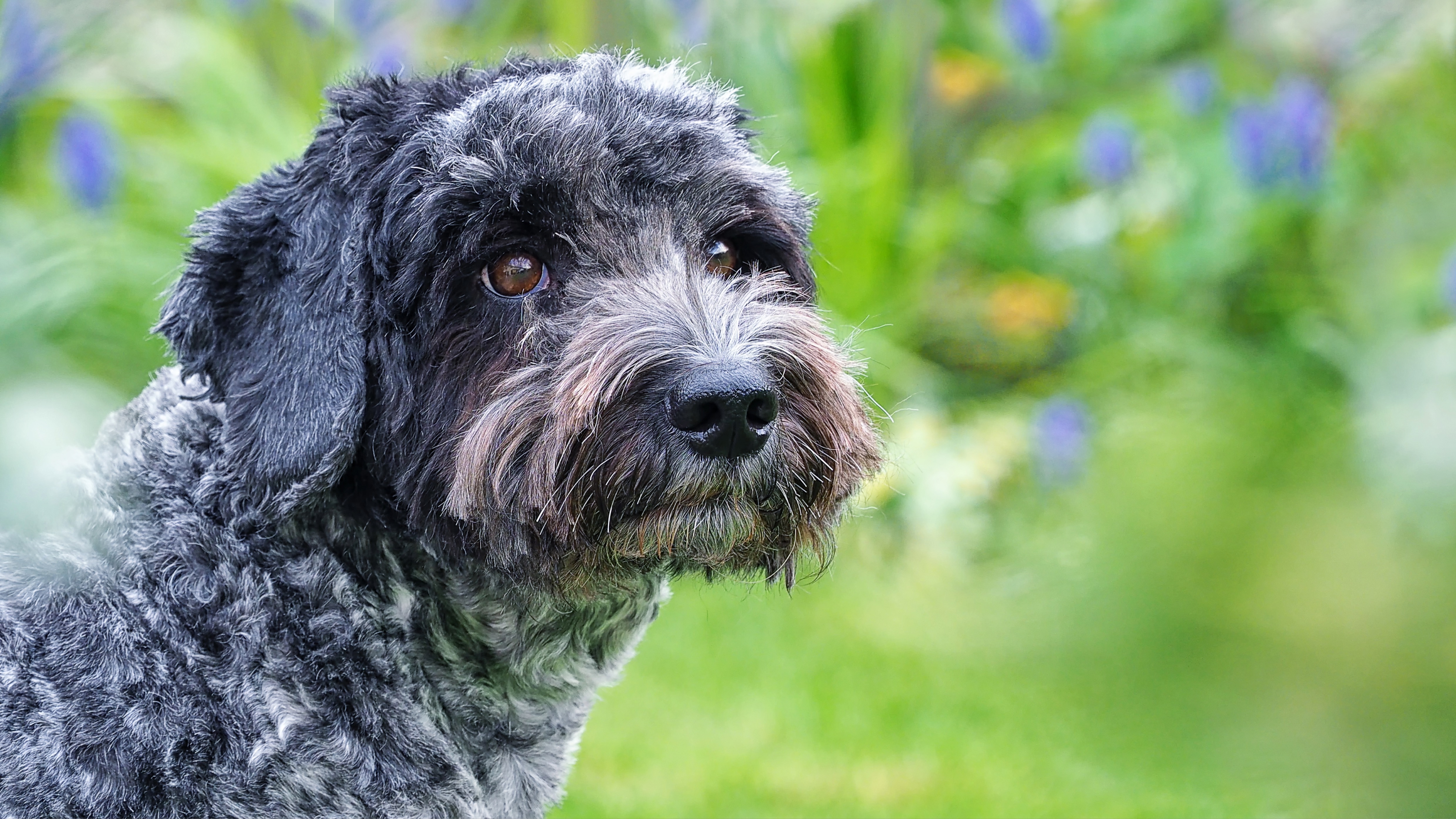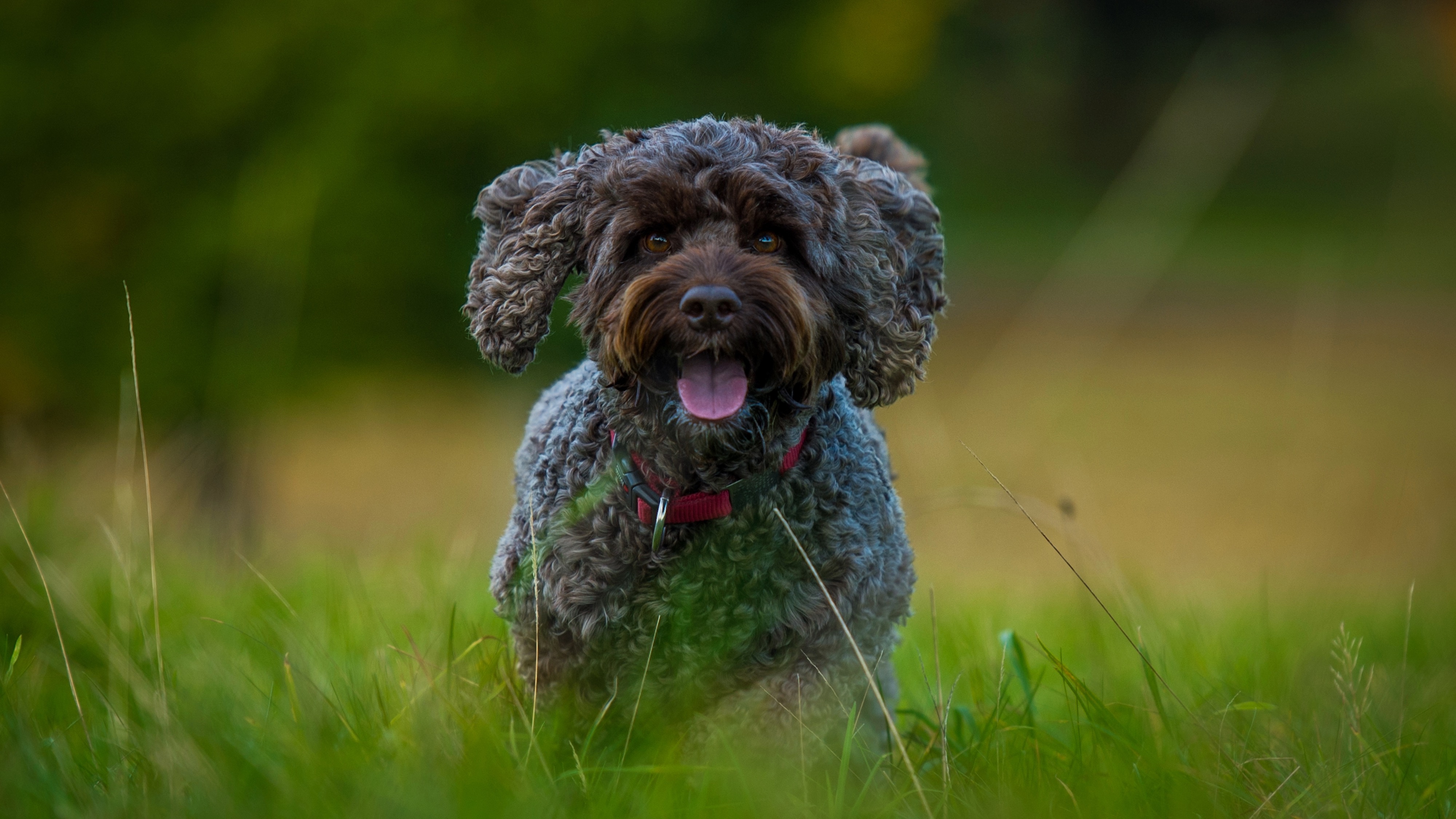How long do cockapoos live? Everything you need to know about this breed
How long do cockapoos live? An expert vet answers that question...and a whole lot more!

How long do cockapoos live? It's a question you may be asking if you're considering welcoming one of these energetic bundles of joy into your family.
The good news is that daily exercise with the best dog toys, a healthy and nutritious diet, and regular vet checkups will ensure that most cockapoos reach 12-15 years of age.
A cross between a cocker spaniel and a poodle, the cockapoo is a charming dog with a loving nature. However, it's worth brushing up on how to play with a dog and ensuring you have the time and energy to devote to this breed as they relish regular opportunities to be active.
To help you figure out if the cockapoo is the right fit for you and your family, we spoke to vet Dr. Hannah Godfrey who was more than happy to answer all our questions on the cockapoo's temperament, exercise, and grooming needs, and whether or not they're easy to train.

Dr Hannah Godfrey studied Veterinary Medicine at the Royal Veterinary College London. After graduating in 2011, Dr Godfrey went on to become a veterinary surgeon, conducting surgery consultations on a range of animals at a small independent practice in Cardiff, South Wales, UK. Dr Godfrey has a strong interest in soft tissue surgery. When she’s not helping animals back on their feet, Dr Godfrey writes a number of veterinary and animal-focussed articles.
How long do cockapoos live?
With the proper nutrition and care, cockapoos can live for up to 15 years, which is in line with what Godfrey has seen in her practice.
"In my experience, the majority of cockapoos live between 12 and 15 years. As a crossbreed who has gained popularity recently, the majority of cockapoos that I see in practice are less than ten years old."
Like all dog breeds, cockapoos are prone to certain health issues, the most common being hip dysplasia, ear infections (due to their floppy ears), eye conditions (such as cataracts), and skin problems.
Get the best advice, tips and top tech for your beloved Pets
However, while it's worth being aware of these health issues, not all cockapoos will suffer from them. Purchasing your pup from a reputable breeder who can produce evidence of health clearances for both your puppy's parents can go a long way to preventing problems from occurring.
Regular checkups with your vet, daily exercise, and a balanced diet in the form of the best dry dog food or the best wet dog food will also help ensure your pup stays fit and well.
What is the temperament of a cockapoo?

There are so many wonderful reasons to adopt a dog, but it's important to do your research carefully to make sure you're choosing a breed that's going to be the right fit for you and your lifestyle.
The best dogs for extroverts are a fantastic choice if you're looking for an energetic and friendly pup who will get along well with just about anyone and will love spending time at large social gatherings or accompanying you on hikes with friends — and the cockapoo certainly ticks these boxes!
"Cockapoos are generally affectionate, intelligent, active, and playful," says Godfrey, making them well worth considering if you're after a canine companion who will charm the pants off just about everyone they meet. An adorable dog with the personality of a clown, the cockapoo will certainly keep a smile on your face.
Looking for the best dogs for introverts instead? Well, believe it or not, the eager-to-please cockapoo can still be a really great choice for you if you love long, solo strolls in nature or are happy to spend quiet, 1:1 time playing with them in your backyard or local park. They're not overly hyperactive either, meaning they'll be more than happy to curl up beside you when they've burnt off some energy.
However, Godfrey does issue one note of caution. "I have known quite a few cockapoos who show aggressive behavior, likely due to anxiety or fear. As many of the cockapoos that visit the clinic where I work were adopted during the COVID-19 pandemic, they didn’t have the same early experiences of other dogs and new people that you would expect."
Godfrey says that because most had their owners at home with them all day, rather than at work, separation anxiety in dogs became a real problem for this breed when COVID-19 restrictions lifted and their owners went back to work.
Is a cockapoo a good family dog?
If you have a family, then selecting one of the friendliest dog breeds is likely high on your list of priorities — after all, the last thing you want is a pup that doesn't get on well with children or other pets.
Thankfully, cockapoos typically make fantastically fun playmates for kids thanks to their high energy levels and playful nature.
"Cockerpoos can be very good family dogs as they are active, affectionate, and enjoy playtime," Godfrey confirms. "However, as with any dog, it’s important to teach children how to handle them and always supervise them together, just in case."
How much exercise does a cockapoo need?

Outgoing and fun-loving, the cockapoo is an adorable bundle of energy that needs plenty of physical and mental stimulation each day to stay happy and healthy.
"Cockapoos are naturally active dogs, so without the right amount of exercise they can become bored, destructive, and potentially overweight," Godfrey explains. "It’s a good idea to walk your cockapoo for half an hour twice a day or give them one longer walk with lots of toilet breaks throughout the day."
There are lots of ways to have more fun with your dog on walks, so those daily strolls needn't feel like a chore. We highly recommend playing games like hide-and-seek, turning your walk into a learning opportunity by practicing recall and obedience or letting your cockapoo engage their nose through sniffing.
Of course, as Godfrey points out, if your cockapoo has health problems or struggles to walk, speak to your vet to help decide the right amount of exercise for them.
Is a cockapoo easy to train?
Because the cockapoo has such an eager-to-please nature, they can be very receptive to training — as long as it involves lots of positive reinforcement.
"Cockapoos have a lot of energy and are very active, which makes them easy to train if you can get their attention!" says Godfrey. "If you start young and make sure you reward good behavior with the best dog treats, verbal encouragement, and affection, your cockapoo has the intelligence and willingness to learn."
Remember, with a cockapoo you're getting a mixed breed, so while they have the smarts from their poodle line, they also have the scattered attention that cocker spaniel owners will be all too familiar with!
So when it comes to practical tips for training your dog on your own, we recommend that with the cockapoo you double down on repetition and reward. Focus on one goal at a time, keep training sessions short, and be consistent.
Do cockapoos bark a lot?
"Cockapoos aren’t one of the breeds that are particularly associated with excessive barking, like Yorkshire Terriers, Jack Russell Terriers, and many other terrier breeds," explains Godfrey. "However, like all dogs, they bark sometimes, and some bark more than others. Their barking could be triggered by the excitement of you arriving home, a stranger at the door, or meeting another dog."
As with all dogs, socializing your cockapoo from a young age is going to be key in helping them become comfortable in and around new people, animals, and environments.
If your dog won't stop barking (whether it be due to excitement, fear, or anxiety) we recommend consulting a trainer or behaviorist for support and guidance.
Do cockapoos shed?

"Because cockapoos are part poodle, and poodles are a low-shedding breed, it’s often assumed that cockapoos don’t shed either," Godfrey says. "It’s true that most cockapoos don't shed much hair, but there's some variation from dog to dog. After all, some dogs will contain more poodle traits, while others contain more cocker spaniel traits."
While cockapoos typically shed a lot less than other breeds, you'll still want to learn how to groom a dog as a light brush each day will help prevent your pup's coat from becoming matted. If your cockapoos coat is particularly curly, you may find it easier to visit a professional groomer every 4-6 weeks to help keep their fur looking fabulous.
Are cockapoos hypoallergenic?
While cockapoos are often considered to be a hypoallergenic breed, it's important to note that no dog breed is 100% allergy-friendly. However, if you're looking for a pup that's less likely to trigger an allergic reaction, the cockapoo may be worth considering.
"Cockapoos generally shed less hair than some other breeds, but they still shed some," explains Godfrey. "What’s more, it’s not necessarily their hair but dander and saliva that tends to cause allergies in people, so being a low-shedding dog won’t improve that. Some people with allergies will react less to a low-shedding dog, but others have allergy symptoms regardless."
How big do cockapoos get?
"The size of a cockapoo depends on the size of their parents," explains Godfrey. "If a cockapoo is bred from a miniature or toy poodle, they’ll be much smaller than if one of their parents was a standard poodle. The majority of the cockapoos that I see in the clinic are medium-sized, but they tend to range from around 5 to 11 kg (11 to 24 lbs)."
Looking for more great canine content to ensure your cockapoo thrives in the first year of life and beyond? Here's everything you need to know about bringing home a puppy for the first time, plus 32 top tips for first-time dog owners. Or, read our comparison of Cavapoos vs Cockapoos.

Kathryn is a freelance writer who has been a member of the PetsRadar family since it launched in 2020. Highly experienced in her field, she's driven by a desire to provide pet parents with accurate, timely, and informative content that enables them to provide their fur friends with everything they need to thrive.
Kathryn works closely with vets and trainers to ensure all articles offer the most up-to-date information across a range of pet-related fields, from insights into health and behavior issues to tips on products and training.
When she’s not busy crafting the perfect sentence for her features, buying guides and news pieces, she can be found hanging out with her family (which includes one super sassy cat and a kitten), drinking copious amounts of Jasmine tea and reading all the books.
She has written for a range of publications, including Fit&Well, Top Ten Reviews, LiveScience, Goodto, and Product Hunt.
